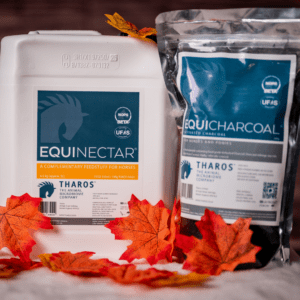The study, published in the Journal of Modern Agriculture and Biotechnology in December 2024, investigates how enzyme rich malt extract (EquiNectar for horses/CaniNectar for dogs) affects the gut microbiome and metabolome in horses and dogs, two species that frequently experience digestive challenges due to their dietary patterns. Horses, which are often fed large amounts of starch-based feeds, and dogs, which typically have low pancreatic amylase levels but consume carbohydrate-rich diets, were selected as test subjects.
The research team, based at the University of Birmingham, Mayo Alix College of Medicine and Science, and Addenbrookes Hospital, conducted an 8-week trial where both species were supplemented with enzyme rich malt extract (EquiNectar for horses/CaniNectar for dogs) (0.7mL/kg body weight). Faecal samples were collected before and after the supplementation period and analysed using specific ion flow tube mass spectrometry (SIFT/MS) and 16S metagenomic analysis to assess changes in both metabolic products and bacterial populations.
Working with Professor Claire Turner at Brunel University for the metabolomic analyses, the results demonstrated significant improvements in both species. In horses, there was an increase in beneficial short-chain fatty acids (SCFAs) and a decrease in toxic compounds such as dimethyl disulphide and ethanol. The equine microbiome showed reduced levels of potentially harmful Spirochaetes whilst beneficial bacteria like Fibrobacter, Ruminococcaceae, Blautia, and Oscillospira increased. Similarly, dogs exhibited reductions in toxic compounds (ammonia, methanol, ethanol) and increased levels of SCFAs. Their microbiomes showed decreased levels of Spirochaetes and Proteobacteria, with higher levels of beneficial bacteria such as Blautia.
The study, led by Rosemary H. Waring, T. Forcht Dagi, and John O. Hunter, introduces the concept of “anabiomics” – approaches to restore healthy gut microbiomes without introducing foreign microorganisms. The dual mechanism of action of enzyme-rich malt extract (EquiNectar for horses / CaniNectar for dogs), which provides both digestive enzymes and a maltodextrin matrix, appears to support improved microbiome health in both species. This research suggests potential applications for managing digestive health in various mammalian species through dietary supplementation rather than traditional pre- or probiotic interventions.




